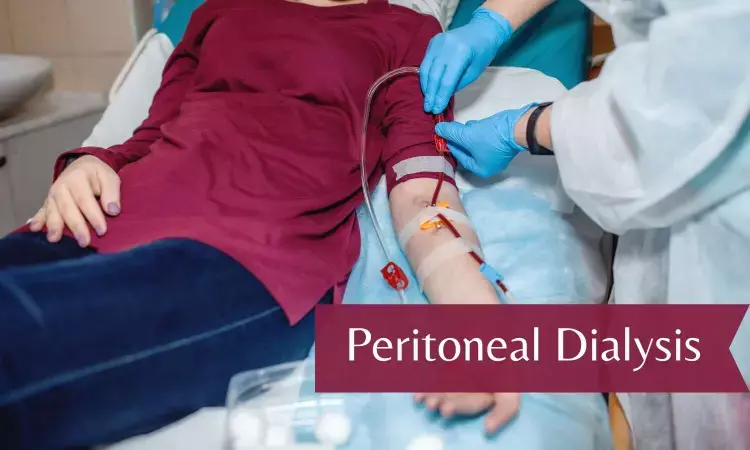- Home
- Medical news & Guidelines
- Anesthesiology
- Cardiology and CTVS
- Critical Care
- Dentistry
- Dermatology
- Diabetes and Endocrinology
- ENT
- Gastroenterology
- Medicine
- Nephrology
- Neurology
- Obstretics-Gynaecology
- Oncology
- Ophthalmology
- Orthopaedics
- Pediatrics-Neonatology
- Psychiatry
- Pulmonology
- Radiology
- Surgery
- Urology
- Laboratory Medicine
- Diet
- Nursing
- Paramedical
- Physiotherapy
- Health news
- Fact Check
- Bone Health Fact Check
- Brain Health Fact Check
- Cancer Related Fact Check
- Child Care Fact Check
- Dental and oral health fact check
- Diabetes and metabolic health fact check
- Diet and Nutrition Fact Check
- Eye and ENT Care Fact Check
- Fitness fact check
- Gut health fact check
- Heart health fact check
- Kidney health fact check
- Medical education fact check
- Men's health fact check
- Respiratory fact check
- Skin and hair care fact check
- Vaccine and Immunization fact check
- Women's health fact check
- AYUSH
- State News
- Andaman and Nicobar Islands
- Andhra Pradesh
- Arunachal Pradesh
- Assam
- Bihar
- Chandigarh
- Chattisgarh
- Dadra and Nagar Haveli
- Daman and Diu
- Delhi
- Goa
- Gujarat
- Haryana
- Himachal Pradesh
- Jammu & Kashmir
- Jharkhand
- Karnataka
- Kerala
- Ladakh
- Lakshadweep
- Madhya Pradesh
- Maharashtra
- Manipur
- Meghalaya
- Mizoram
- Nagaland
- Odisha
- Puducherry
- Punjab
- Rajasthan
- Sikkim
- Tamil Nadu
- Telangana
- Tripura
- Uttar Pradesh
- Uttrakhand
- West Bengal
- Medical Education
- Industry
Incremental Peritoneal Dialysis May Safely Replace Standard Method for New Patients, Study Suggests

China: A recent systematic review and meta-analysis have shed light on the outcomes of incremental peritoneal dialysis (IPD) compared to standard full-dose peritoneal dialysis (SPD) in patients initiating dialysis treatment.
The study, published in BMC Nephrology, revealed that incremental peritoneal dialysis may be a viable alternative to SPD for new dialysis patients. The analysis indicates no significant differences in patient survival, rates of peritonitis, or technique survival between the two approaches. However, according to the authors, the effects of IPD on residual renal function (RRF) remain uncertain.
Incremental peritoneal dialysis involves administering less than the standard full-dose peritoneal dialysis for patients with end-stage renal disease. Although IPD is increasingly documented in the literature, its safety and efficacy compared to SPD remain uncertain. Therefore, Jing Cheng, Hospital HuZhou University, Huzhou, Zhejiang Province, China, and colleagues conducted a systematic review of studies that compared mortality, rates of peritonitis, technique survival, anuria-free survival, and RRF between IPD and SPD.
For this purpose, the researchers included all comparative studies published on PubMed, Embase, CENTRAL, Scopus, and Web of Science databases from their inception until September 5, 2023, that reported on the specified outcomes.
The following were the key findings of the study:
- Ten studies were included. Definitions of IPD were heterogenous and hence mostly a qualitative synthesis was undertaken.
- The majority of studies found no difference in patient survival between IPD and SPD.
- Meta-analysis of crude mortality data also presented no significant difference.
- Peritonitis and technique survival were also not significantly different between IPD and SPD in the majority of studies.
- Data on RRF was conflicting. Some studies showed that IPD was associated with the preservation of RRF, while others found no such difference.
The findings revealed that incremental peritoneal dialysis may yield outcomes similar to standard peritoneal dialysis in new dialysis patients. There appear to be no significant differences in patient survival, rates of peritonitis, or technique survival between the two approaches. However, the effect of IPD on residual renal function remains uncertain, with existing evidence being heterogeneous and conflicting.
"Future studies should include comparable groups of patients, initiating observations at the start of peritoneal dialysis. These studies should comprehensively report all outcomes covered in this review, ensuring a sufficiently long follow-up period to yield robust evidence," the researchers concluded.
The researchers, however, noted several limitations, including a limited number of studies and significant methodological differences that hindered comprehensive analysis. Many studies relied on observational data, introducing bias, and lacked clarity on patient selection. Additionally, they did not report outcomes for patients transitioning to hemodialysis or transplantation and important issues like cardiovascular diseases.
Reference:
Xu, S., Wu, W. & Cheng, J. Comparison of outcomes of incremental vs. standard peritoneal dialysis: a systematic review and meta-analysis. BMC Nephrol 25, 308 (2024). https://doi.org/10.1186/s12882-024-03669-w
Dr Kamal Kant Kohli-MBBS, DTCD- a chest specialist with more than 30 years of practice and a flair for writing clinical articles, Dr Kamal Kant Kohli joined Medical Dialogues as a Chief Editor of Medical News. Besides writing articles, as an editor, he proofreads and verifies all the medical content published on Medical Dialogues including those coming from journals, studies,medical conferences,guidelines etc. Email: drkohli@medicaldialogues.in. Contact no. 011-43720751


